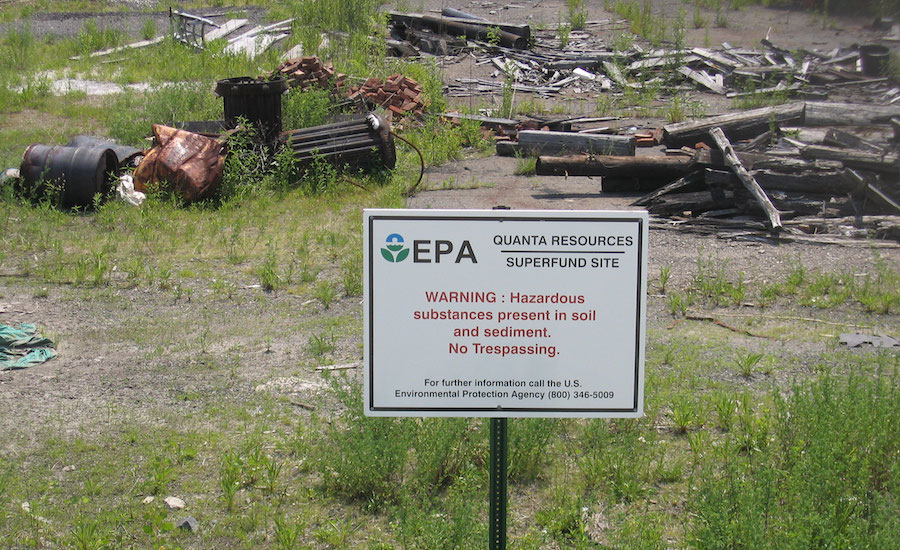A new report from an environmental advocacy group criticizes the slow pace of environmental cleanups under the chronically underfunded Superfund program, which turned 35 on Dec. 11. The report, released by the Center for Health, Environment and Justice, calls for reinstatement of “polluter pays fees,” in which chemical and oil companies pay an excise tax into a trust fund for cleanups at sites where alleged polluters either can’t be identified or are out of business. “The Superfund program isn’t so super anymore,” says Lois Gibbs, an early cleanup activist who leads the group.
The report claims Superfund has been “mismanaged” by the Environmental Protection Agency. During the Obama administration, cleanups dropped from 20 in 2004 to eight in 2009. In November, a bicameral group of Missouri lawmakers introduced legislation to transfer to the Army Corps of Engineers oversight of the West Lake landfill site near St. Louis, where an ongoing fire is burning closer to radioactive waste.
Mathy Stanislaus, an EPA assistant administrator who manages the program, says Congress has repeatedly failed during the Obama presidency to appropriate funding to collect the fees. Meanwhile, Superfund has dropped from nearly $4 billion gained from funding and excise taxes in 1999 to $1.1 billion in 2013. From 2001 to 2008, the number of sites cleaned fell more than 50%, says a September Government Accountability Office report. Stanislaus said at a Dec. 10 panel discussion in Washington, D.C., that Superfund “should be a dedicated fee-based program.” Every year “there is a backlog of sites because there is no responsible party to help fund the cleanup ... and we simply can’t do it.” Susan Bodine, who held Stanislaus’ position under George W. Bush, said congressional action on reforms is “not on their radar screens this term.”
“Whether a dedicated fund would actually help or not, given the politics and process,” is not clear, says a veteran Superfund contractor. But he points to faster results and better polluter cooperation under the Great Lakes Restoration Initiative, an accelerated multi-agency cleanup effort begun in 2010. “It’s a better model for Superfund,” he adds. “For larger sites, it appears more effective than what we’ve seen elsewhere.”






